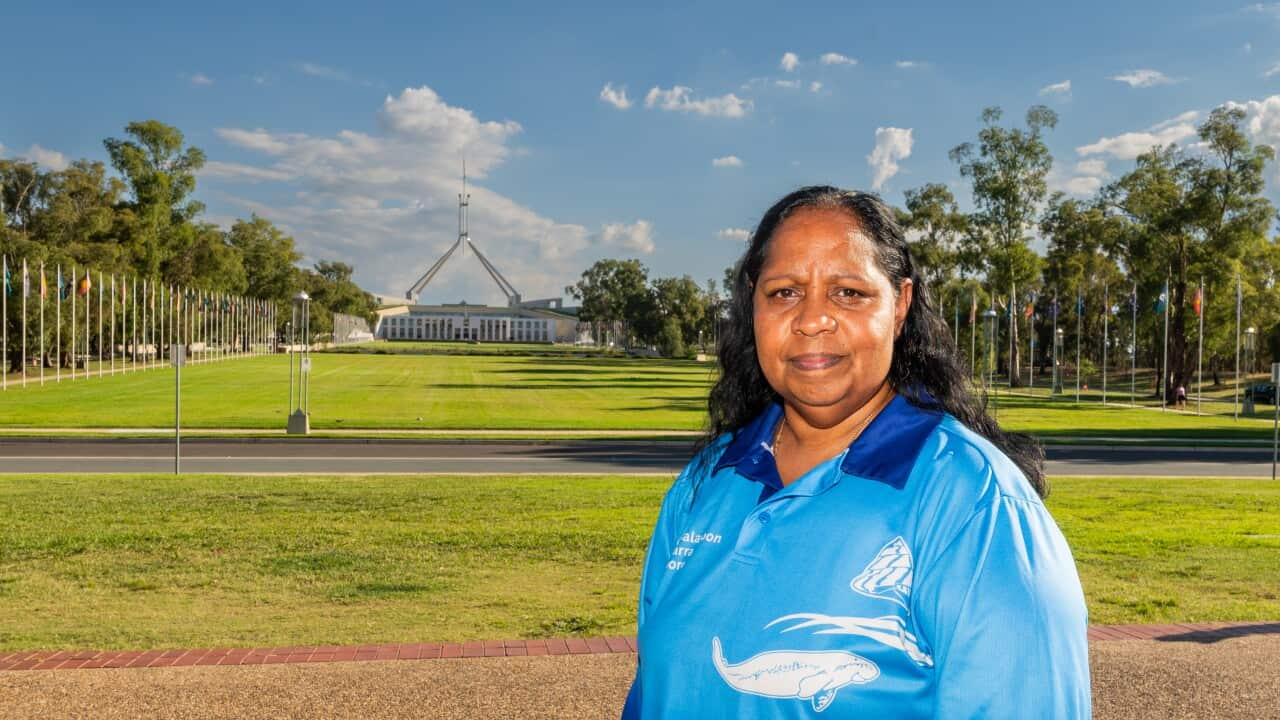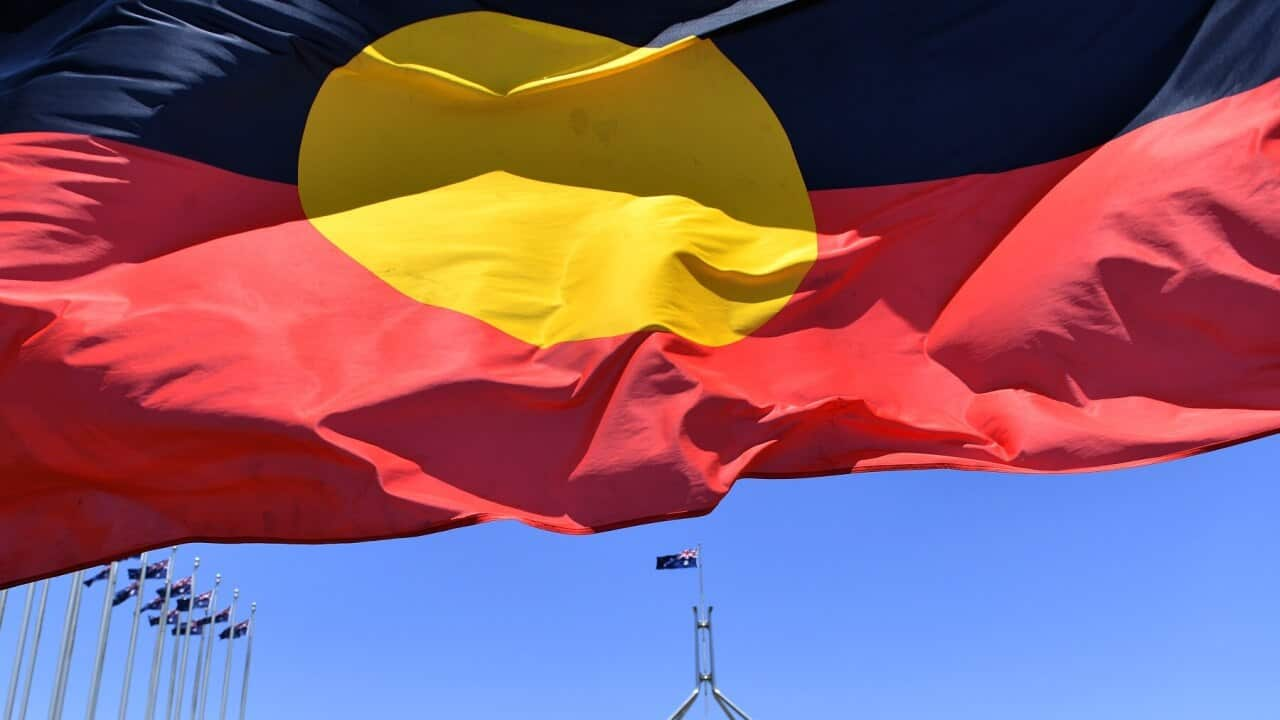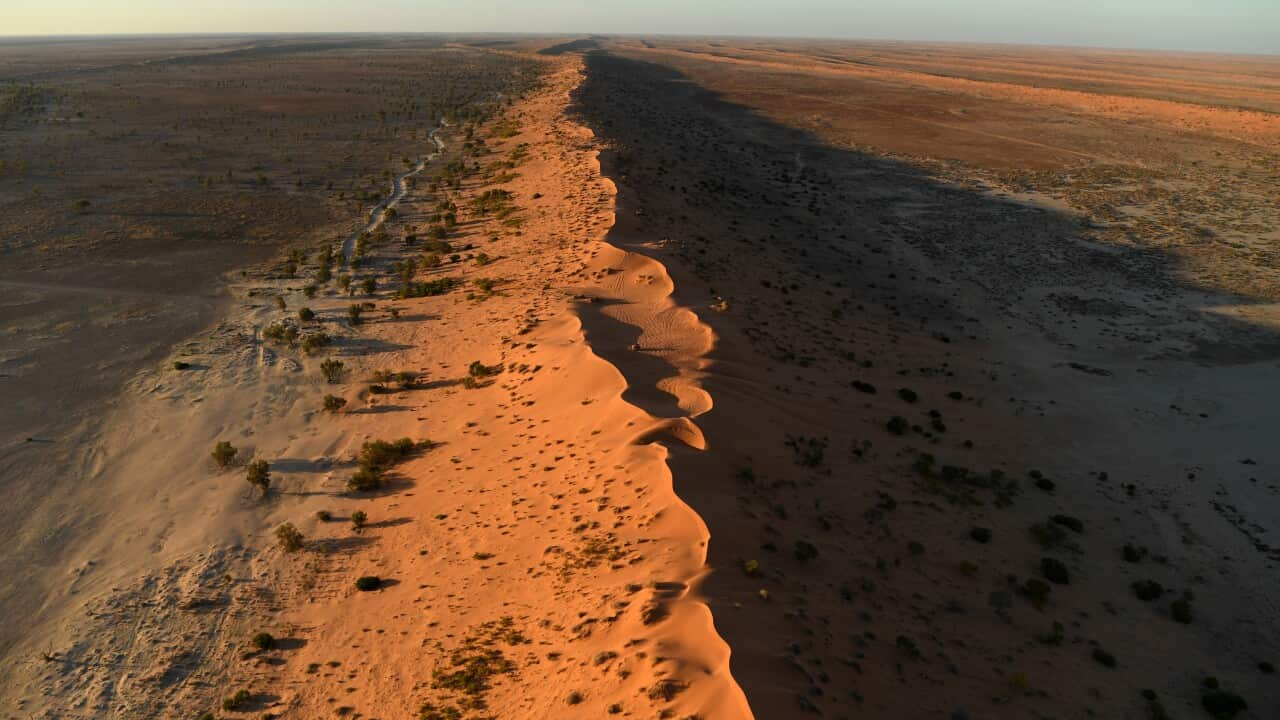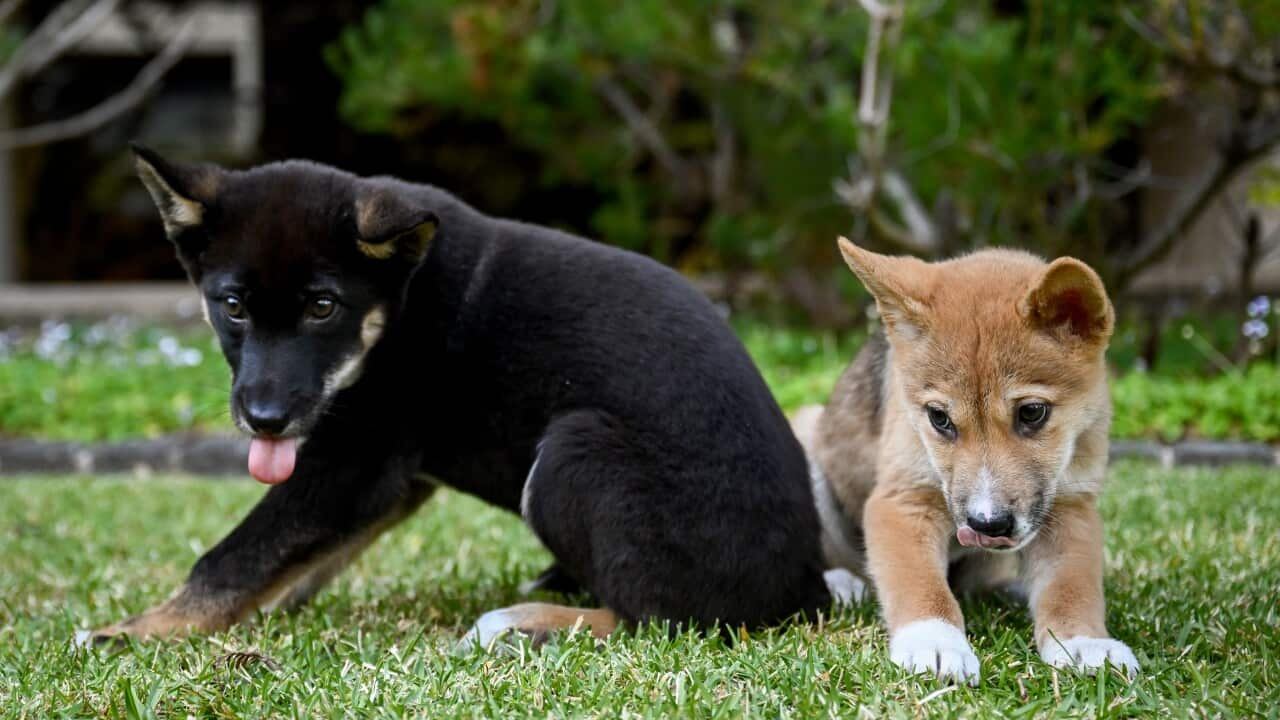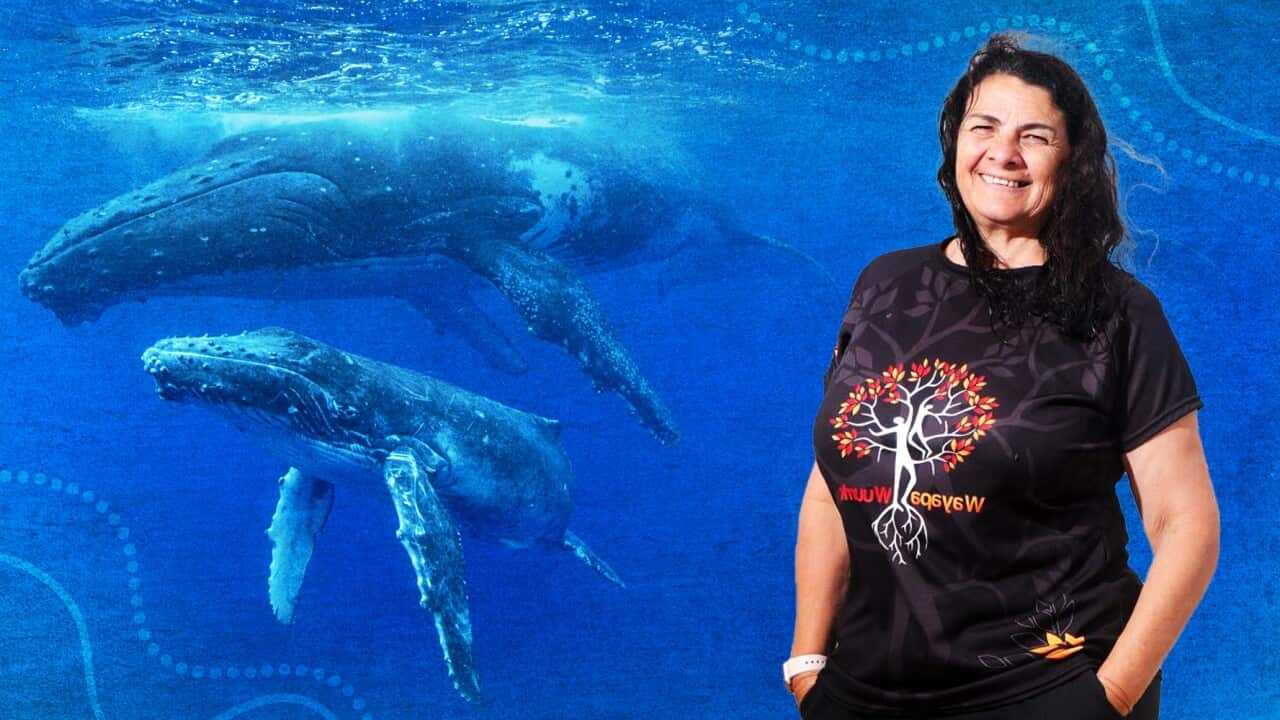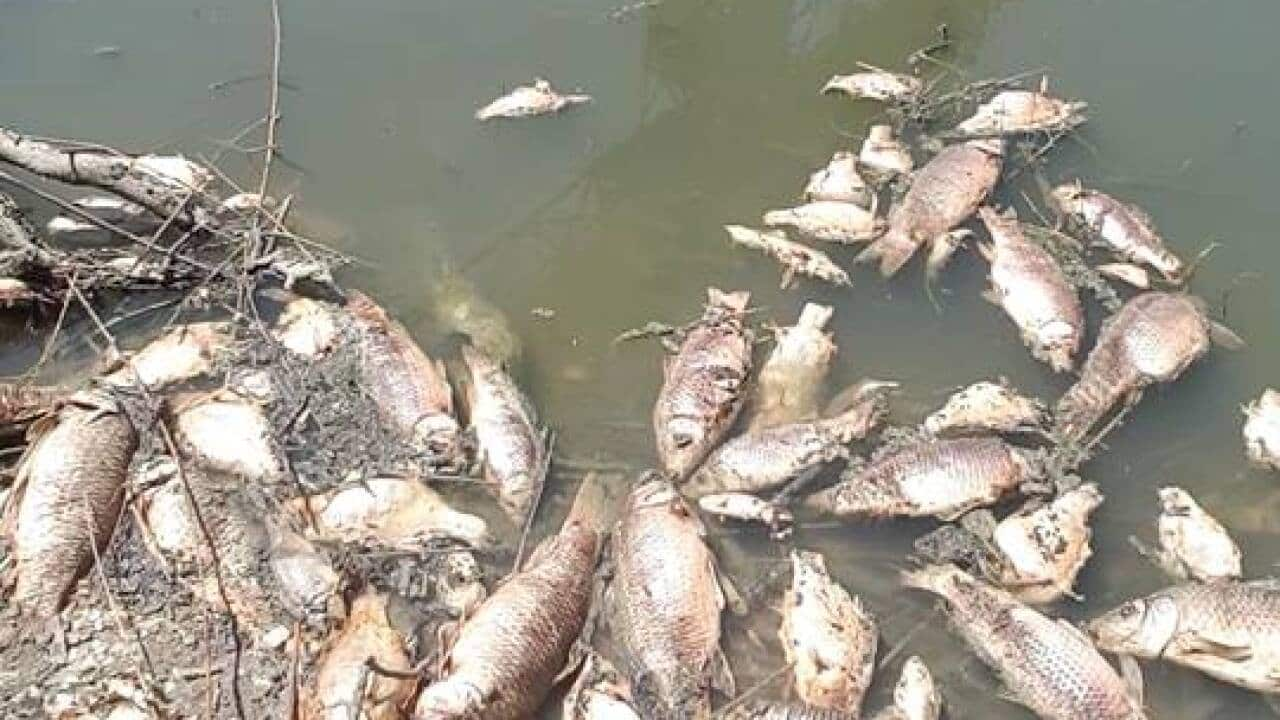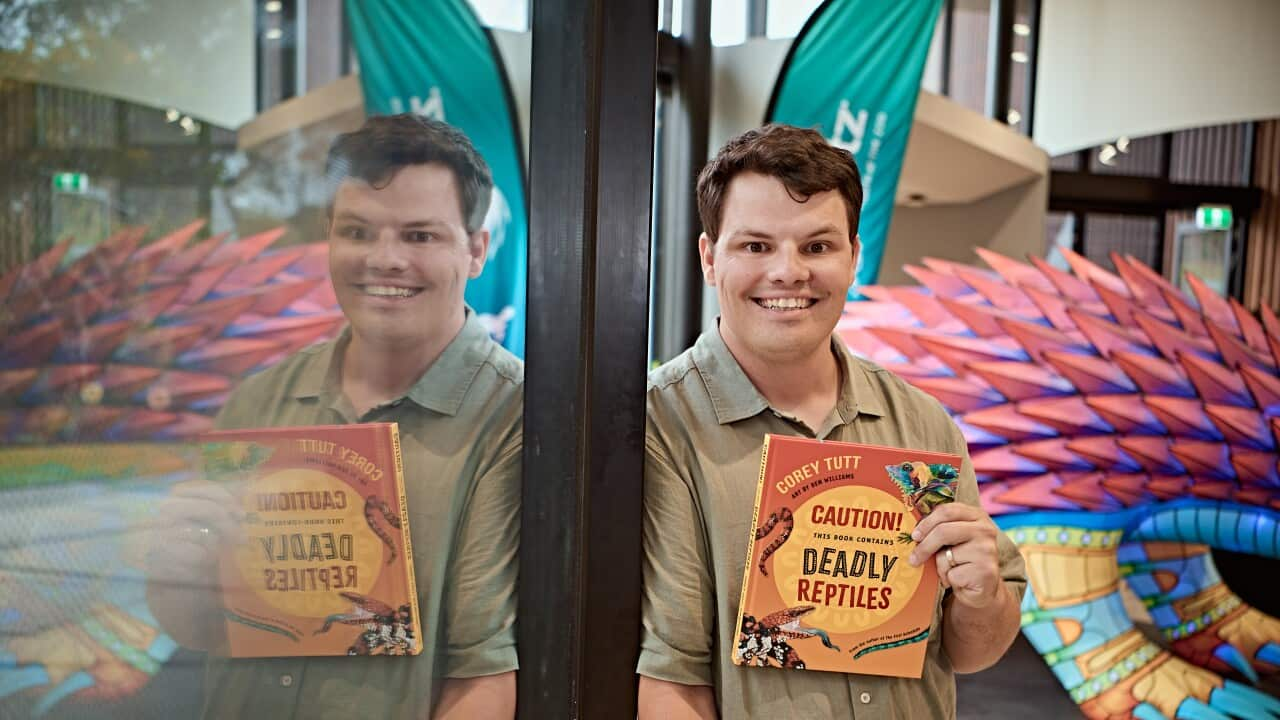Mayala Traditional Owner Janella Isaac sees the Indigenous Protected Area networks as a modern way of protecting Country and a way of understanding how everything is interconnected.
"Everything has its role, not just the people," she told NITV.
"We are obligated to care for our Country, as custodians, but we also have to find ways to protect wildlife and plants, because they have a role to play as well."
Ms Isaac travelled from her home in the Kimberley to Canberra this week for the national Indigenous Protected Areas workshop organised by non-profit organisation Country Needs People.
Traditional Owners from 20 organisations across the country – from Cape York, to South East Arnhem Land, the Great Sandy Desert, the Kimberley, Tiwi Islands, regional NSW and Victoria and beyond, met to discuss Indigenous Protected Areas and how to strengthen their management.
"Under the old cultural management systems everybody back then had a role to play and they had to ensure that in certain seasons people were camping in certain areas where they're supposed to be," Ms Isaac said.
"Because of the nomadic lifestyle that they led that allowed for regrowth, rejuvenation, for Country to heal itself in its own way.
"Whereas today, because we're semi-displaced people, we have to find ways to ensure that Country is taken care of and we have to play that role in protecting it."
Budget support for IPAs
On Saturday, Federal Environment Minister Tanya Plibersek announced that the Labor Government would invest $250 million over five years in a Saving Australia's Bushland program, as part of Tuesday's Budget, which included support for new IPAs.
Ms Plibersek said the new investment would help deliver Labor’s commitment to protect 30 per cent of land and 30 per cent of seas by 2030 and that increasing the number of protected areas will preserve landscapes and protect native plants and animals.
Country Needs People chief executive Patrick O'Leary welcomed the investment.
"So with this announcement we’re keen to see more detail of specifically what funding is allocated to IPAs, which now make up the majority of Australia's protected areas on land," he said.
"IPAs need support commensurate with the contribution they make to Australia's protected area system and the pressures they face.”

Dr Bhiamie Williamson, Environment Minister Tanya Plibersek and Country Needs People CEO Patrick O'Leary. Credit: ModeImagery Paul Chapman
"We see that IPA as a tool to help manage our Sea Country under a management plan that really is underpinned by our culture and our cultural management," Ms Isaac said.
"It's very isolated, which is a good thing, because Mayala Country and the islands is a biodiversity sanctuary.
"We've got species, endangered species that are thriving on our islands because our islands are pretty much untouched Country."
The islands in the Mayala IPA are home to rare plants, including one species that is only found on two islands, Ms Isaac said.
"We do have a high level of protection for our animals, and especially our endangered animals and species of plants because they're very important, they play an important role in the ecosystem," she said.
"When you look at cultural values and ecological values, they pretty much sing this one song, in that sense of the high level of importance and the role that they play for Mayala Country."
Different species of whales journey through Mayala waters.
"It's a Mother Nature's nursery and that's where they teach the young calves to actually swim and manoeuvre through the shallows of Mayala Country before they they enter into the deep waters," Ms Isaac said.
"We have the whale dreaming in our Country, it's like an intersection, with the winter nesters and the summer nesters and the turtles that come through our Country as well.
"We have a lot of species in our oceans that that give us our cultural stories, to help us understand how to behave, how to act on Country the way we should, in the right way and in accordance with our cultural understanding."
Country Needs People’s chair Dr Bhiamie Williamson, a Euahlayi man from northwest NSW, said everyone benefits through investment in Indigenous Protected Areas because they are genuinely community driven, protect biodiversity, sustain and respect culture, and generate local jobs and partnerships.
"IPAs are at the frontline of climate change impacts and it's vital that all parties strengthen their funding and support to help them navigate and respond including to increasing extreme weather events and other pressures," he said.
Nathan Brennan is involved with the , located in the Gumbaynggirr coastal region surrounding Coffs Harbour, including the Solitary Islands, rivers, estuaries and headlands on the NSW North Coast.
They have five rangers and three school-based employees who do a wide range of activities on Sea Country, including working with endangered species like the Bellinger River snapping turtle, marine debris clean-up, sea grass monitoring, turtle rehabilitation and marine mammal strandings.
"Grey nurse sharks breed out in parts of the Solitary Islands Marine Park, they're an endangered species and some of the rangers have been out diving, doing surveys and training," Mr Brennan said.
"We hope to work with more of those threatened species, more frequently in the future."
The Gumbaynggirr coast was recently affected by the big seas and floods from Cyclone Alfred.
"Erosion is a big thing, we've got parts of beaches where two metres of sand has been stripped off the beach," he said.
"Also the impacts of all the debris, organic waste, washing into the estuaries, which decomposes and takes oxygen out of the water, which can result in large fish kills.
"So large fish kills, as there have been in some parts of the Northern Rivers, in the Richmond River, washes down all that sediment into our estuaries, which flows out into the Marine Park."
There are now 91 IPAs in Australia, covering over 110 million hectares of land and Sea Country.
Combining traditional knowledge and western science, Indigenous Rangers manage IPAs responding to intensifying threats from changed fire patterns, invasive weeds, feral animals, and a heating climate.
Ms Isaac says on Mayala Country, the changes to the reef system are a big concern and they are looking at ways of combining traditional knowledge with modern science.
"How does that help us to ensure that we still have our fish stocks in the sea to ensure that our future is secured because our lifestyle is greatly impacted, we are sea Country people, our natural diet is from the sea," she said.
"So it's about looking at that two-way science now and how do we face it."
For both Ms Isaac and Mr Brennan one of the important aspects of ranger programs through the IPA network is working with young people.
"Part of the role of the rangers is being able to ensure the continuation of our cultural knowledges, and going out and educating young school kids around traditional knowledge and traditional stories and how we looked after Country," Mr Brennan said.
"The presence of role models in the community has a really positive influence on our young people.
"And then having the rangers come in and take them out on field trips and have the children engage in some of those on Country activities and some of the work that the Rangers are doing, it provides a rich learning experience.
"And also gives them the opportunity to have a pathway into the sciences or even as a ranger out on Country."

Gumbaynggirr man Nathan Brennan. Credit: Annette Ruzicka
"That interconnectedness is the key - it's not just about the plants and the animals and the landscapes, but it's also about the people and the next generation coming through," Ms Isaac said.
"One of the key priorities that Mayala has focused on is is actually delivering a Mayala champions program, which is driven by the Mayala young people's network.
"The next generation of our Country managers need to be equipped with the knowledge to ensure that our plan is upheld.
"So a key priority for Mayala under the IPA plan is also, how do we actually deliver the program that allows for that transfer of knowledge to be intact and going forward into the future."
